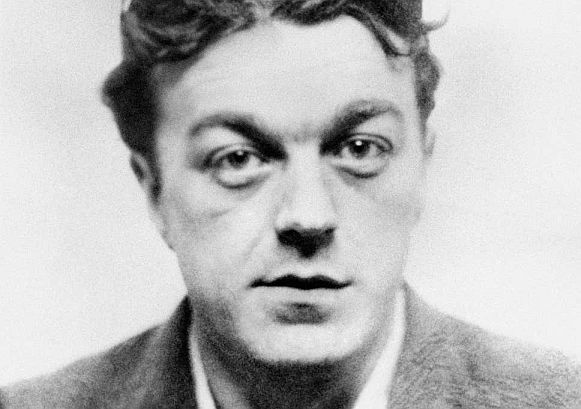

 By VennerRoad, 23rd Oct 2014
By VennerRoad, 23rd Oct 2014
The Parole Board has decided to recommend the release of triple killer Harry Roberts.

The best known photograph of Harry Roberts
One of the big domestic crime stories this month has been the imminent parole of Harry Roberts. If that name is not familiar to you it is almost certainly because of your youth. For those of us of a certain vintage it is well-known, as is the ditty:
Harry Roberts is our friend,
Is our friend,
Is our friend,
Harry Roberts is our friend –
He kills coppers.
Roberts was the prime mover behind the Braybrook Street Massacre. On the afternoon of August 12, 1966, three plainclothes police officers stopped to question the occupants of a car that was waiting near Wormwood Scrubbs prison. They were shot dead by the gang; two by Roberts and a third by John Duddy. Why, remains to be seen, suffice it to say the police launched a massive manhunt, and eventually all three were brought to book. The driver John Witney, Duddy and Roberts were all given the mandatory life sentence. This was only two years after the abolition of the death penalty – in practice though not in theory – and there were calls for the moratorium to be halted. The Moors Murders – which came to light in October 1965 – provoked a similar response.
Harry Roberts is the only member of the gang left alive. Duddy died in prison in 1981; Witney, who was paroled, was murdered in 1999. The Parole Board has now decided in its wisdom that Roberts should be released, and predictably the police are not happy. We have been treated to all the usual guff about what splendid fellows they all are, how they risk life and limb every time they step outside the front door, even those who have desk jobs, and so on. Home Secretary Theresa May has said she will alter the law to ensure that police killers are never paroled, clearly forgetting that she is indeed Home Secretary and not Emperor. Should Roberts be paroled?
Now there is no death penalty, there are really only two things we can do with convicted murderers, either they have to be locked up forever or paroled at some point. Granted that some will be paroled, the next question is are there some crimes so beyond the pale that the perpetrators can never be released? The Parole Board appears to think not, or if that is not quite true then these good folk take a far more restricted view of what is beyond the pale than most of us. In 1973, David McGreavy committed a triple murder that most people would consider even more heinous and unforgiveable than the crime of Harry Roberts, yet an attempt was made to parole him.
In April of that year, fittingly on Friday 13th, McGreavy was baby-sitting for Clive and Elsie Ralph; the Ralphs had been kind enough to take him in after his own parents had thrown him out. McGreavy had a drink problem, and when baby Samantha wouldn’t stop crying, he murdered her. Then he murdered her two siblings, mutilated their faces, and impaled them on the railings outside the family home. Because McGreavy pleaded guilty, there was only a sentencing hearing rather than a full trial; the judge gave him a tariff of only 20 years, probably in the belief that any tariff would be academic, because surely no one could ever consider releasing him?
Incredibly, after little more than that he was moved to an open prison, and in 2006 he was even allowed out to stay at a hostel in Liverpool. Fortunately, that did not last, because someone either at the Home Office or in the Prison Service leaked this information, and after McGreavy was photographed walking the streets, he was returned to a secure environment where hopefully he will spend the rest of his days.
At the centre of the attempt to release McGreavy was anonymity, because although most people have a kind and forgiving nature, some crimes are always beyond the pale for them if not for the Parole Board. Here it is worth mentioning an American case.
In 1978, sicko Larry Singleton raped Mary Vincent, who was then only 15 years old. Then he hacked off both her arms and threw her over a cliff. Incredibly she survived, and just as incredibly, Singleton received only a 14 year sentence for this unthinkable crime. He was paroled after a mere eight years, but when the good people of California realised they had a monster living in their midst, he was relocated to a trailer in the grounds of San Quentin prison for his own safety.
Singleton was born in Florida, and would eventually return there where at the age of 69 he murdered a prostitute. He died in prison while under sentence of death. There are multiple murderers in these islands who have been released from prison, including “Loyalist” Michael Stone, who was convicted of murdering six people. He was released as part of the Peace Process, but has been back behind bars since 2006. Unlike Singleton and Stone, the 78 year old Harry Roberts is unlikely to kill again, but although he remains a folk hero to the likes of the Class War “anarchist” group, he remains anathema to the vast majority of people, and were he released, he would surely need if not total anonymity then some sort of protection. And wouldn’t the police just luv that!
There is though another reason why Roberts should not be paroled, he has already been given a second chance, and blew it spectacularly. He has demonstrated by his actions not only that he lacks any remorse but that he is totally unrepetant and unrehabilitated. He was moved to an open prison in 2001 but was soon back behind bars proper, and if there is any justice at all in this increasingly lawless country, that is where he will remain.
To Wikinut Articles Page